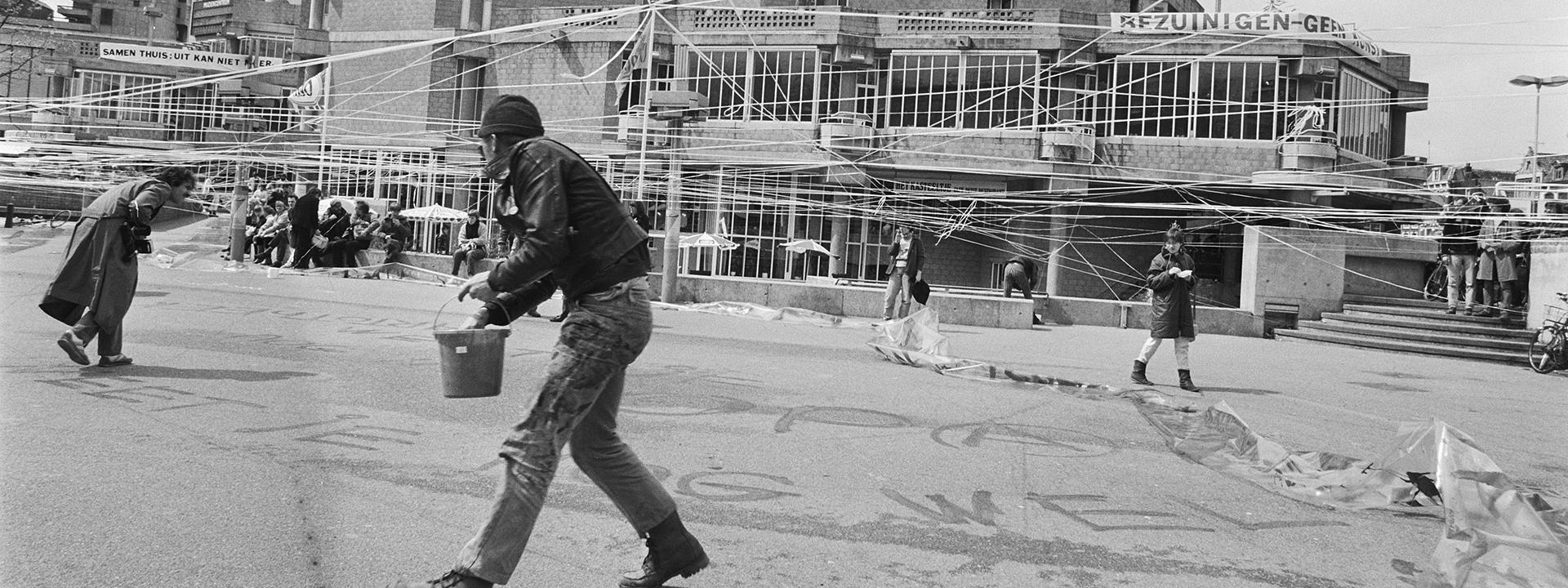When we think about a website now, it may seem a bit dull. There are so many new and trendy developments going on like Virtual reality, Social Media, smartphone apps, and Spatial computing that the website appears to be an outdated and dated relic. This is unjust because the website is unprecedentedly revolutionary and deserves this ode.
What do I mean by 'the website'?
The term website is very broad because theoretically, everything you encounter on the World Wide Web can be a website. Such as an Instagram profile you view through the browser, a page with a YouTube video, or a smartphone app displaying web pages.
When I refer to a website in this ode, I mean an online place where you have access to all files, databases, and content hosted with your own domain name. Think of:
- A personal blog.
- The website of your company or organization.
- A self-developed community for your sports club.
Full control over the website is an important part of this definition.
The website is better than printed media (such as a book or newspaper)
Distributing information through a book or newspaper is limited by the circulation. According to Statista, 5.35 billion people have access to the internet. The best-selling book, A Tale of Two Cities by Charles Dickens, has 'only' sold a little over 200 million copies. By placing information on a website instead of printing it in a book, you make it possible for billions of people to access this information.
Information included in a newspaper or book is not easily amendable afterwards. In the case of a newspaper, it requires a correction, and for a book, a new edition can be made. However, this does not mean that the information already distributed in these physical forms remains unaltered. The counterargument is that a website can always adjust the information, making it less reliable. Fortunately, this can be mitigated by using archive.org (donate to keep this project alive), where you can see a 'snapshot' from the past of a website to check the information from that time.
The website is better than moving images (television or YouTube)
What applies to printed media also applies to television. You have a limited reach. Someone needs access to a television, a subscription, and to tune in at the right time.
Online video services, like YouTube, theoretically have the same reach as websites. Anyone with an (uncensored) internet connection can watch a YouTube video if, and here's the catch, they also have enough bandwidth to stream videos. And that's not always the case. For example, in a continent like Africa. But even in the Netherlands, you don't always have access to sufficient bandwidth when you're on the go and dependent on your mobile data.
Another drawback of video is that it's not scannable. For instance, when you search for a specific piece of information on YouTube, it can be very annoying if you have to watch an ad, an intro, and a plea for likes or subscribes before getting to the core. Videos are often lengthy to perform better according to the algorithm and generate more ad revenue. Of course, you can fast forward the video to get to the right point, but it can sometimes be a bit of a search, as where does the video offer the piece of information you're looking for?
On a website, you can scan directly and search for a word or phrase indicating where the piece of information you're looking for is located. If you can't find it immediately, you can use the built-in search function of a browser.
Additionally, copying or saving information from a website is easier. I personally use the Reader application from Readwise. With this, I can highlight and save interesting passages from articles and websites I read. This is more challenging to do with a video. Interestingly, the makers of the Reader app also encountered this problem and therefore built a feature to transcribe videos. This way, you can still highlight and save information from the video as text, but it's not as straightforward.
The website is better than social media
The website and social media are similar in many ways. With Social Media like Facebook and Instagram, you can create an online space accessible to everyone, just like with a website. If you make your social media page public, you have the same reach as with a website.
In some respects, it's even easier to have a social media page instead of a website because it requires less maintenance and is cheap (or free). That's why you see many small business owners only have a Facebook page and no website of their own.
However, the disadvantages of a social media page do not outweigh the convenience. When you become dependent on social media, you run the risk of being excluded at some point. Your social media page can be closed or removed overnight. For example, if it's determined, for whatever reason, that your page doesn't fully comply with the terms of the social media service.
Page gone? No problem, you might think, I'll just create a new one? You can, but then you lose your reach. All the people who follow or like your page lose access to it. Rebuilding this audience, if possible at all, is a significant task. And who's to say your page won't end up in the trash next time?
This is less likely to happen with a website. If you make regular backups and ensure your domain name doesn't expire, you don't have to worry about this.
So, get a website!
Are you a (small) business owner? Get a website! Are you a designer with your own portfolio? Get a website! Are you a developer who likes to share knowledge? Get a website!
Start now with creating and maintaining your own website because there is no better way to share knowledge and information with your audience.

